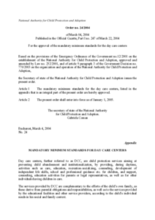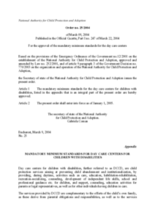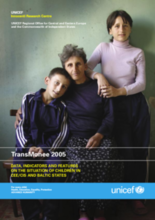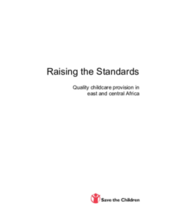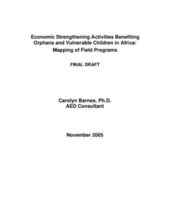Displaying 14061 - 14070 of 14579
Minimum standards for day care centers in Romania.
Outlines minimum standards for the operation of a day care center for children with disabilities in Romania.
This report assesses the expenditure which is required to transform foster care services across the UK, in order to give children in public care the same opportunities to have a successful future as other children. Contains relevant statistics and social welfare system reform recommendations.
Provides a framework for analysis of community-based social welfare services and linkages with government structures. Includes analysis of alternative care provision, de-institutionalization, programming for children with disabilities, standards of care, and overall social welfare sector reform.
The TransMONEE statistical tables display indicators of human welfare in the 27 countries of CEE/CIS and Baltic States. Population, natality, maternal and child mortality, health, education, child protection and economics serve as the key indicators.
This report examines the social and economic trends and challenges affecting children in CEE/CIS and the Baltic States. Social orphanhood, maternal and infant mortality rates, deaths from accidents and injuries, infectious disease, and low public health expenditures are addressed.
This paper examines childcare policy in Mozambique. It finds that vulnerability increases when orphans are placed in resource-poor kinship care arrangements.
A guideline to establish and promote good practice in a variety of childcare settings through the application of quality indicators. The indicators address professional practice, quality of care, caregivers, resources and administration.
This document is a guideline to facilitate good policy and practice within institutional care settings for children in Timor. It addresses regulations, registration, standards of care, placement and monitoring.
This paper identifies programs in sub-Saharan Africa focused on economic strengthening interventions, and analyzes their approaches and impact on orphans and vulnerable children. Interventions focused on savings and lending groups, micro-leasing, market linkages and household gardening appear to be particularly effective.

